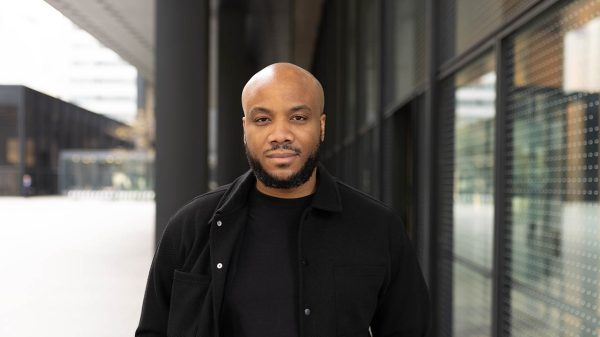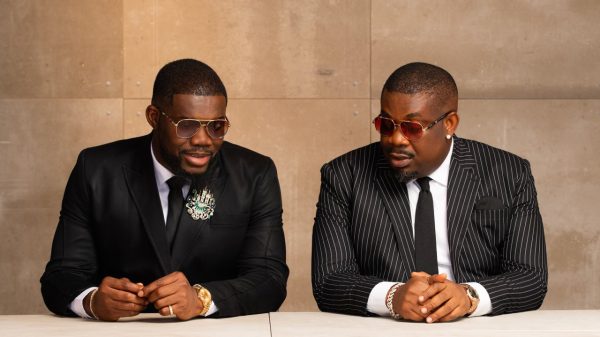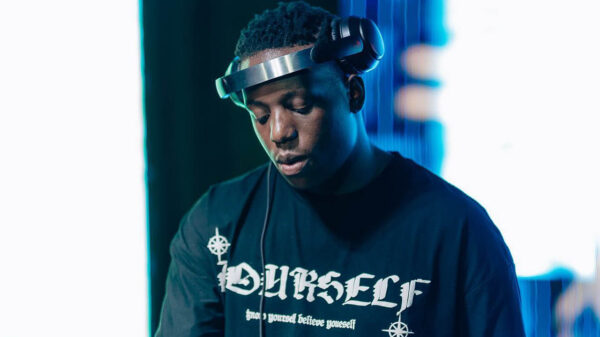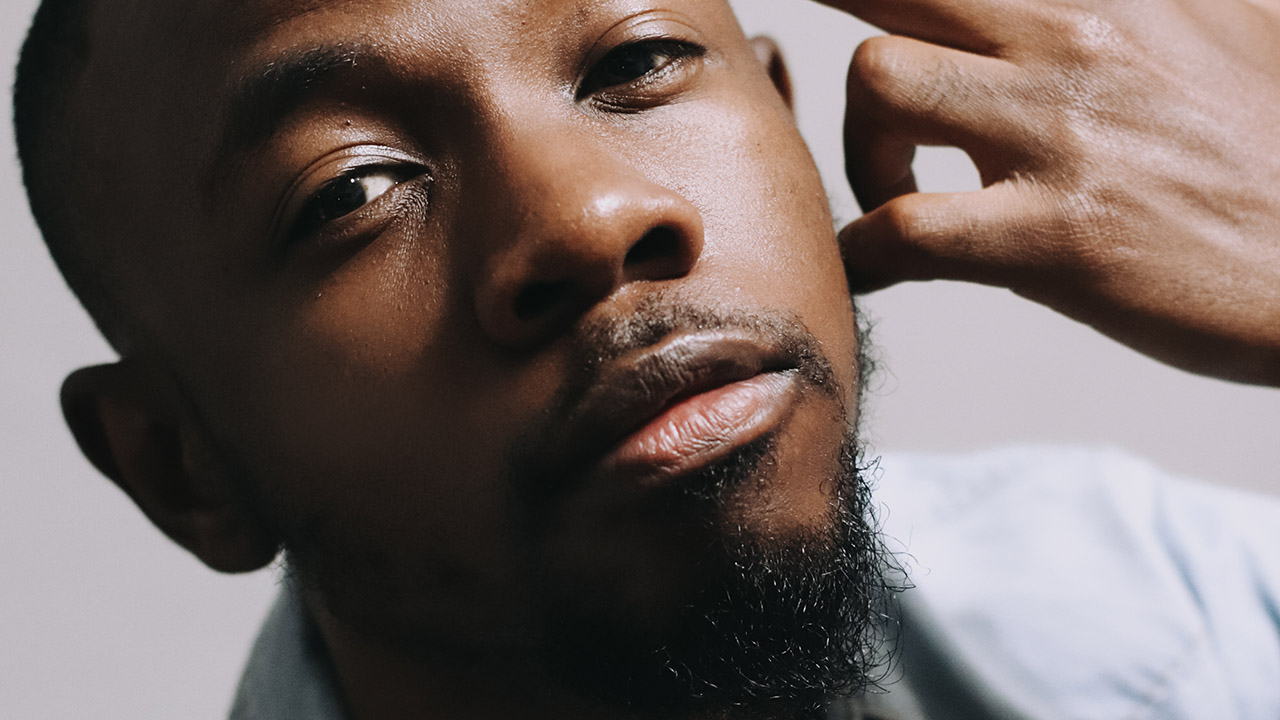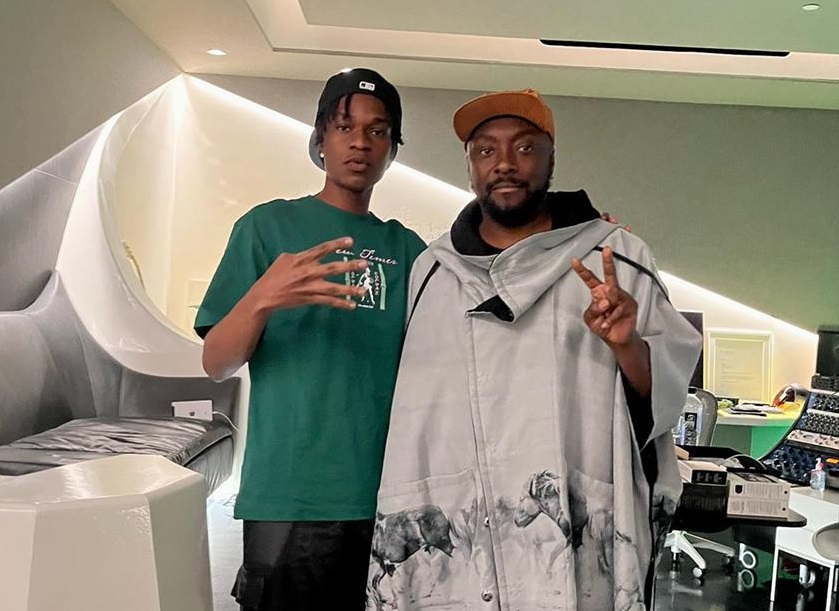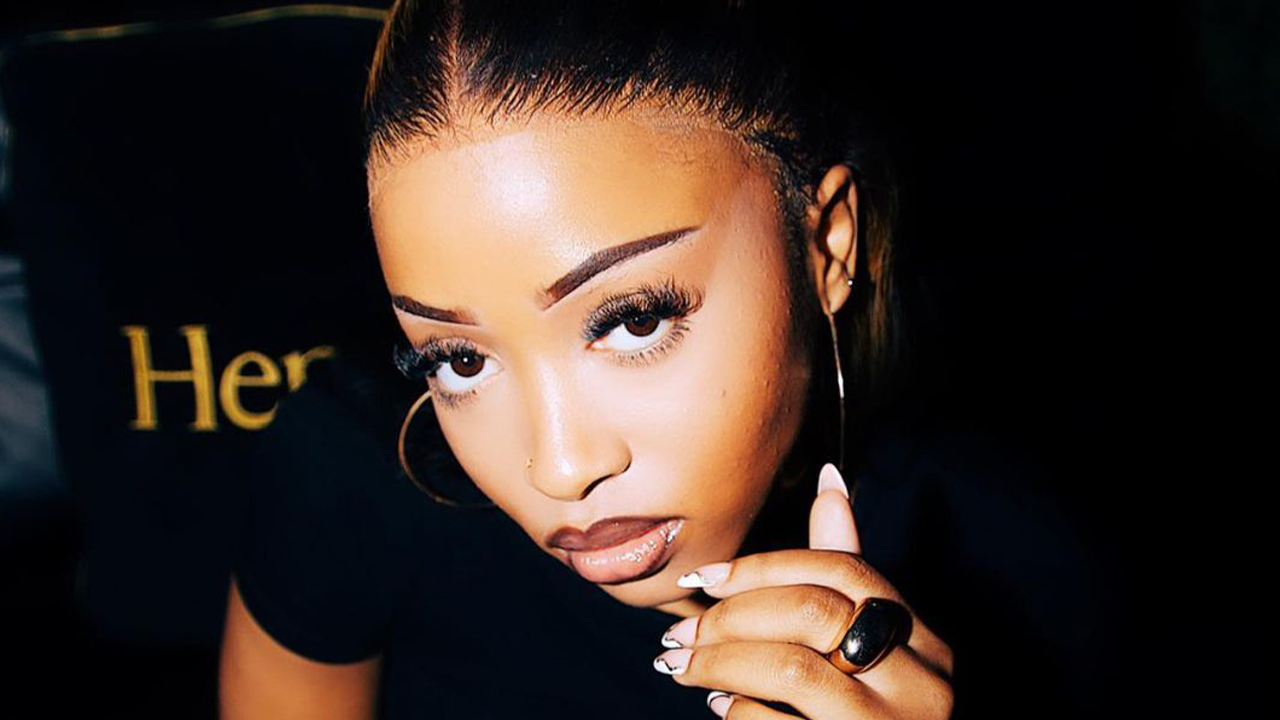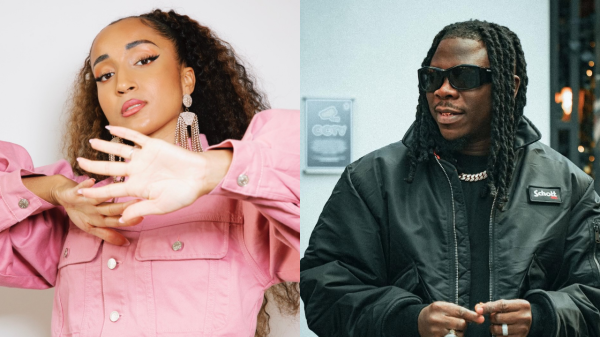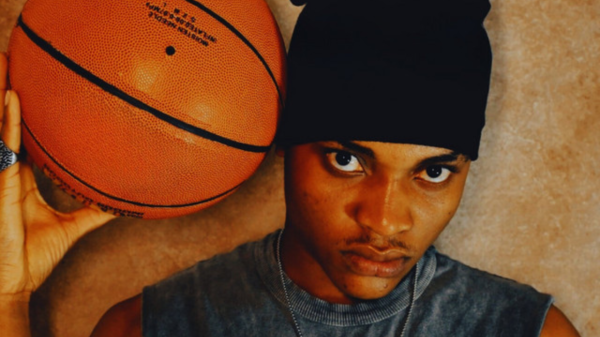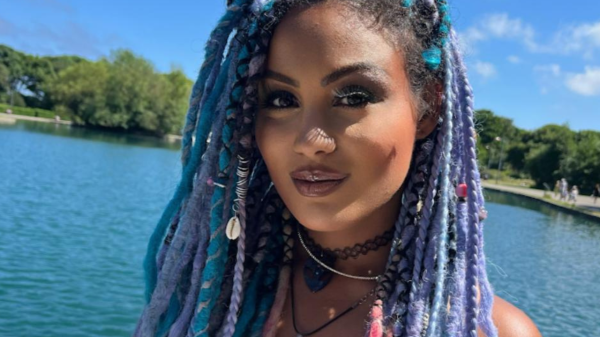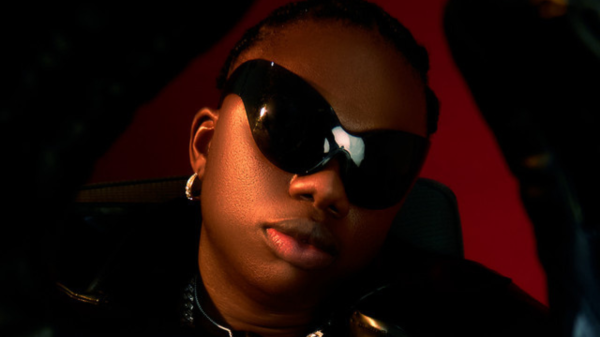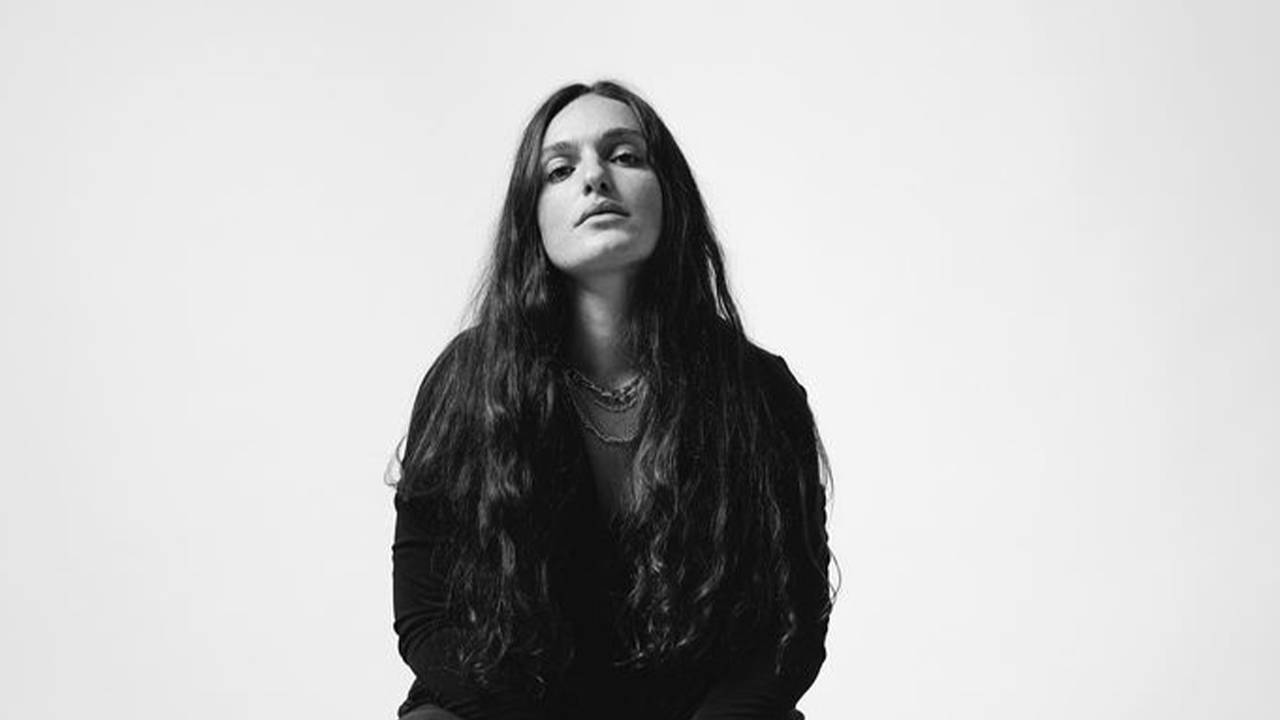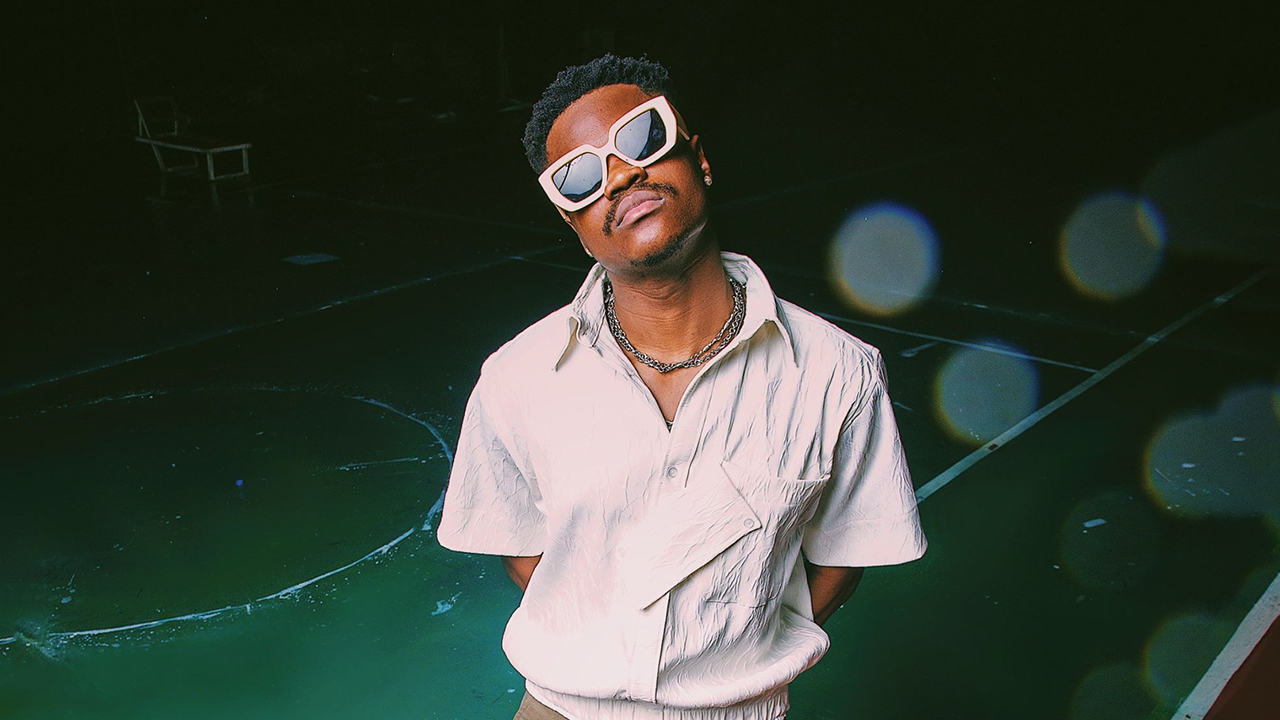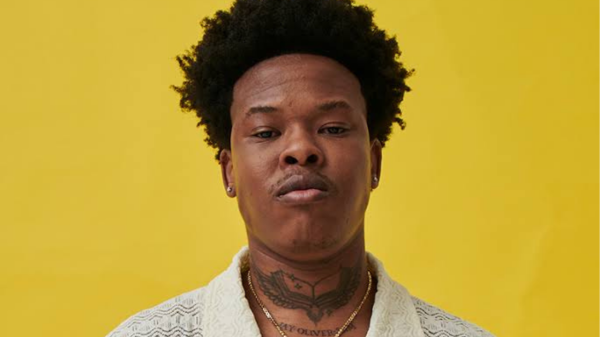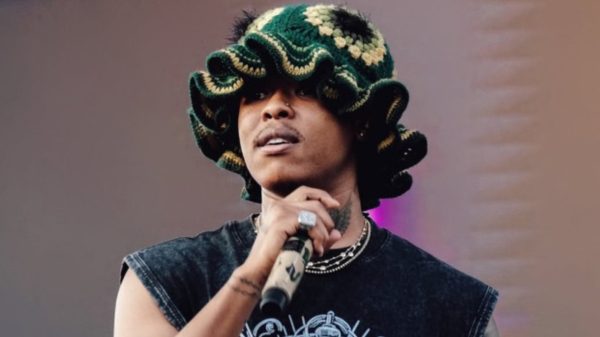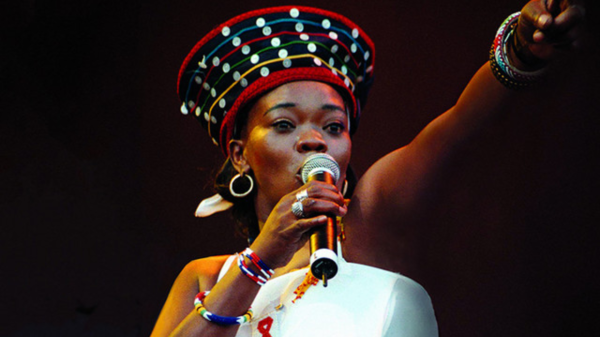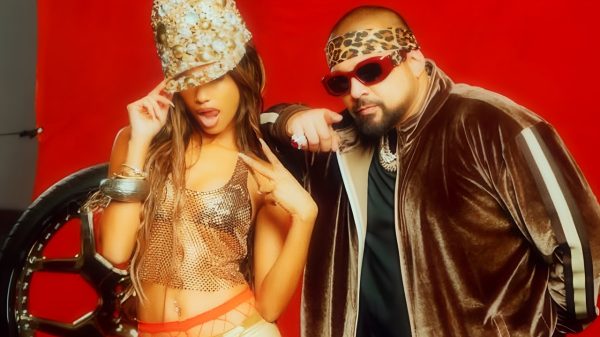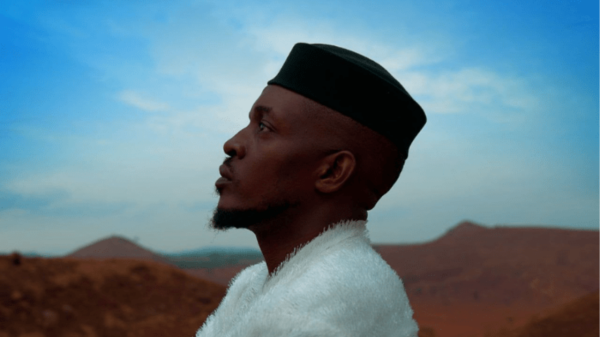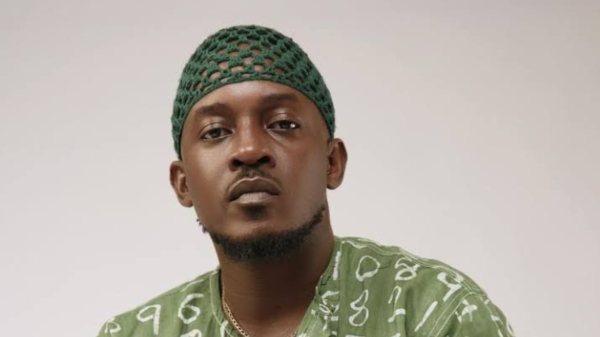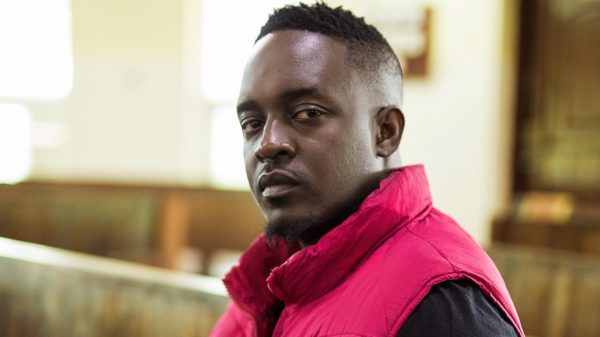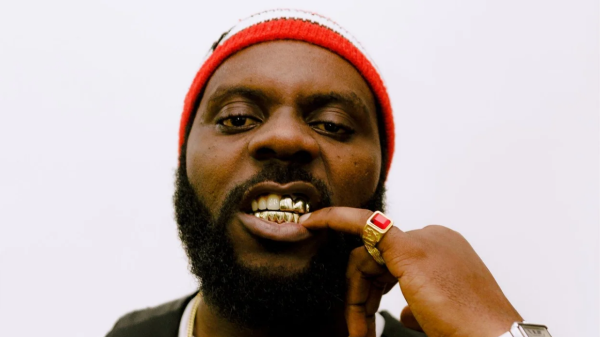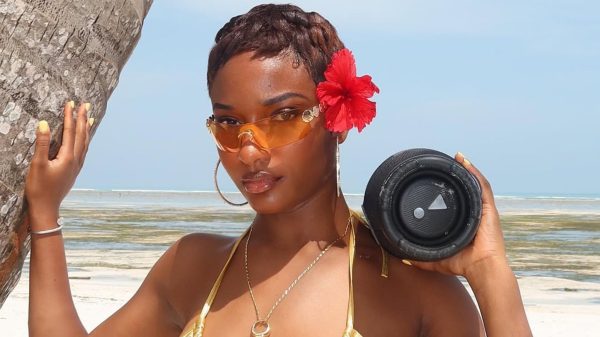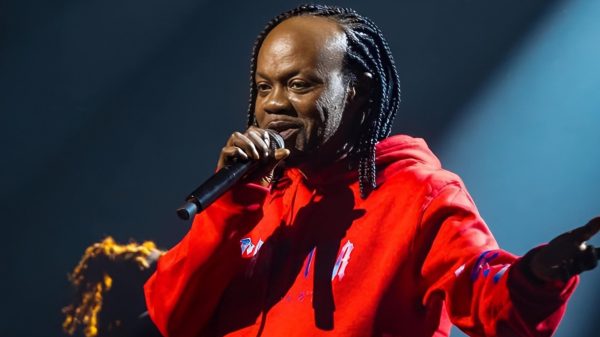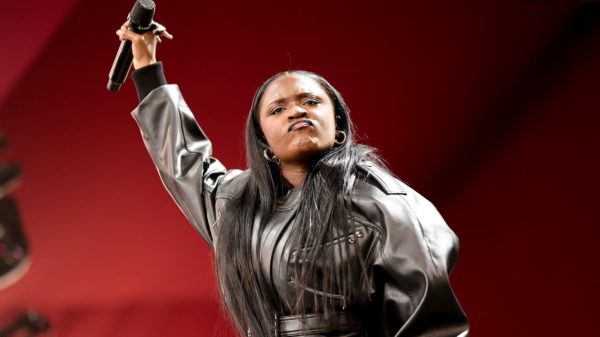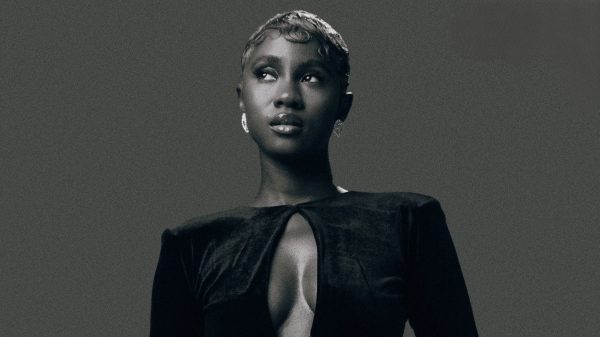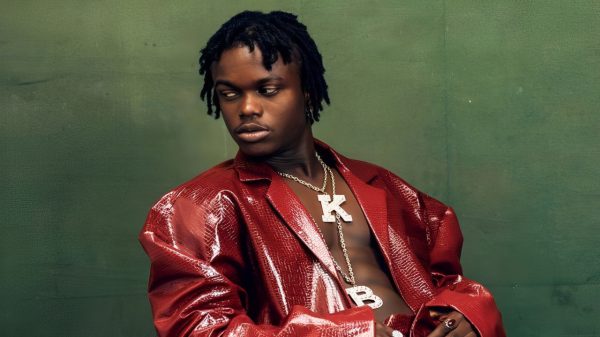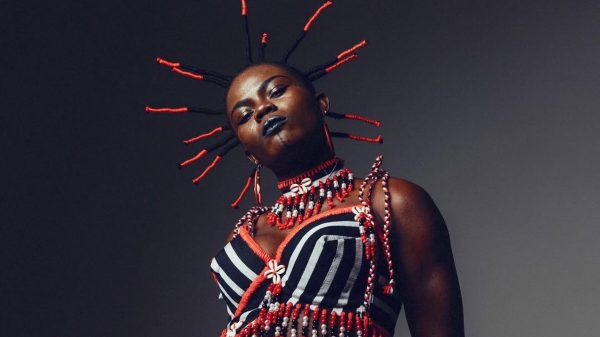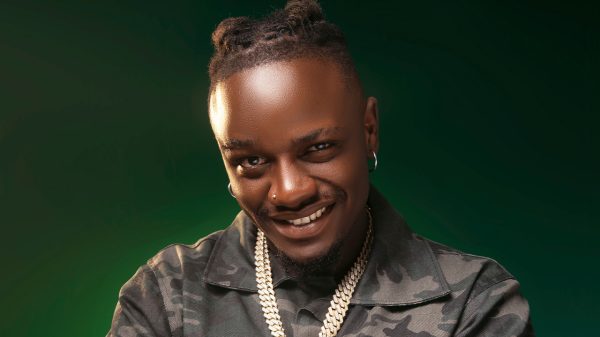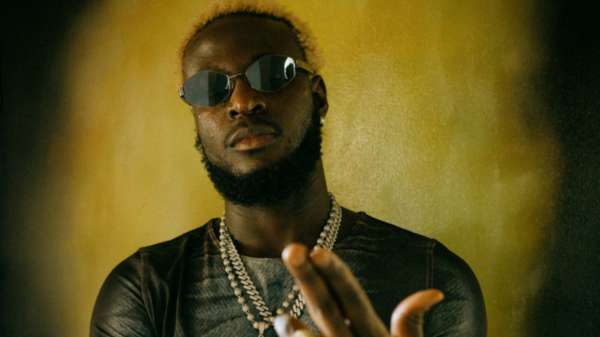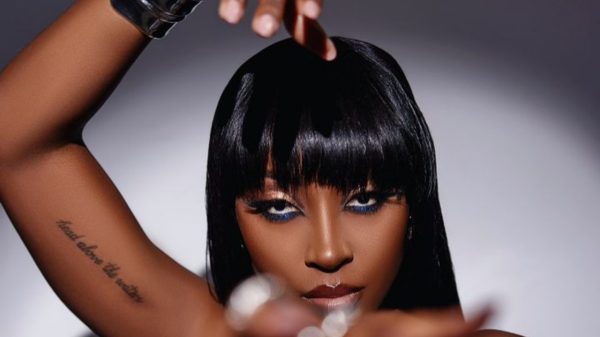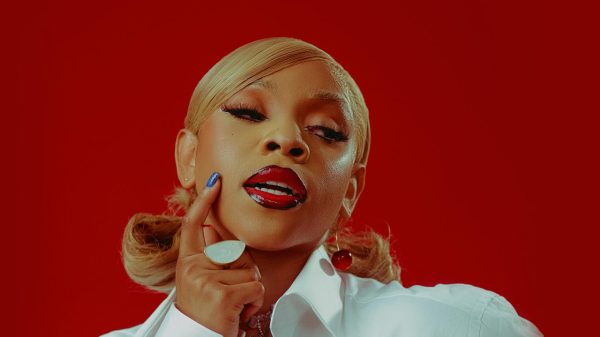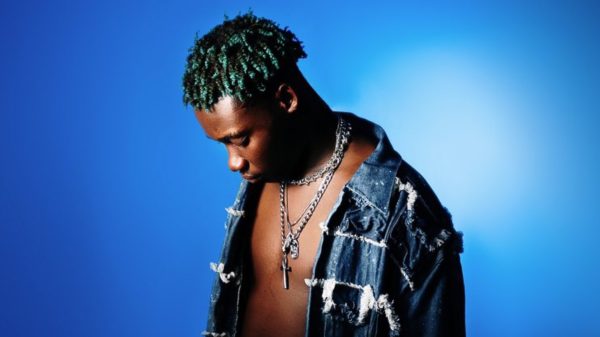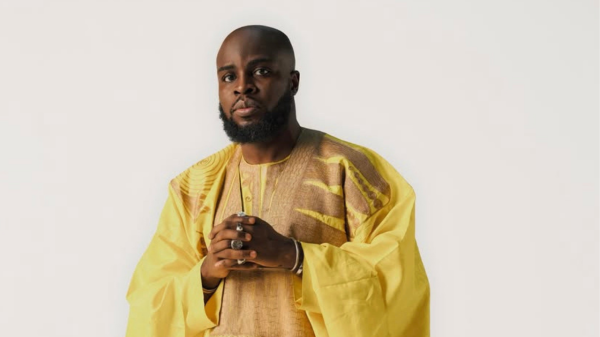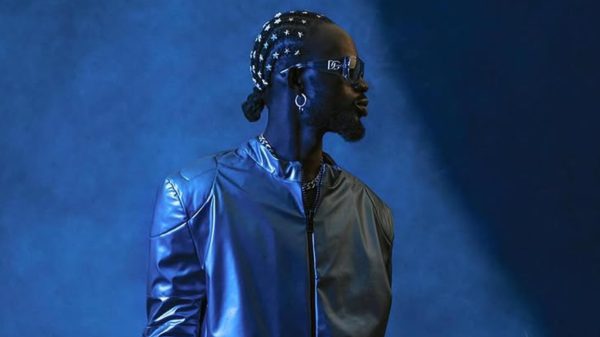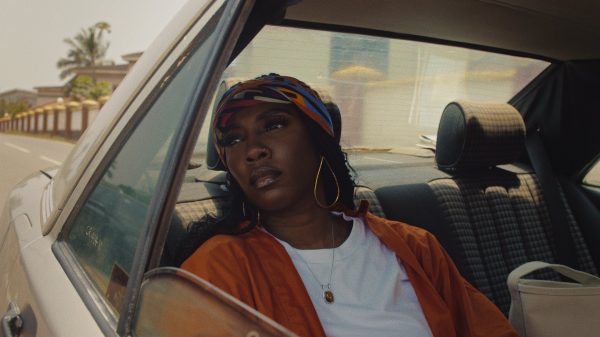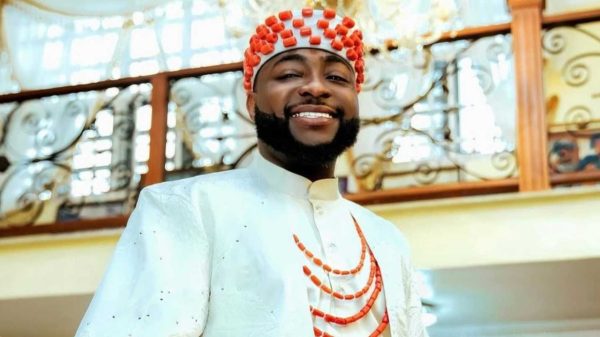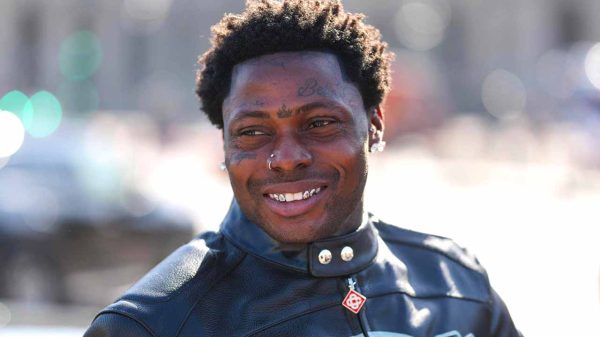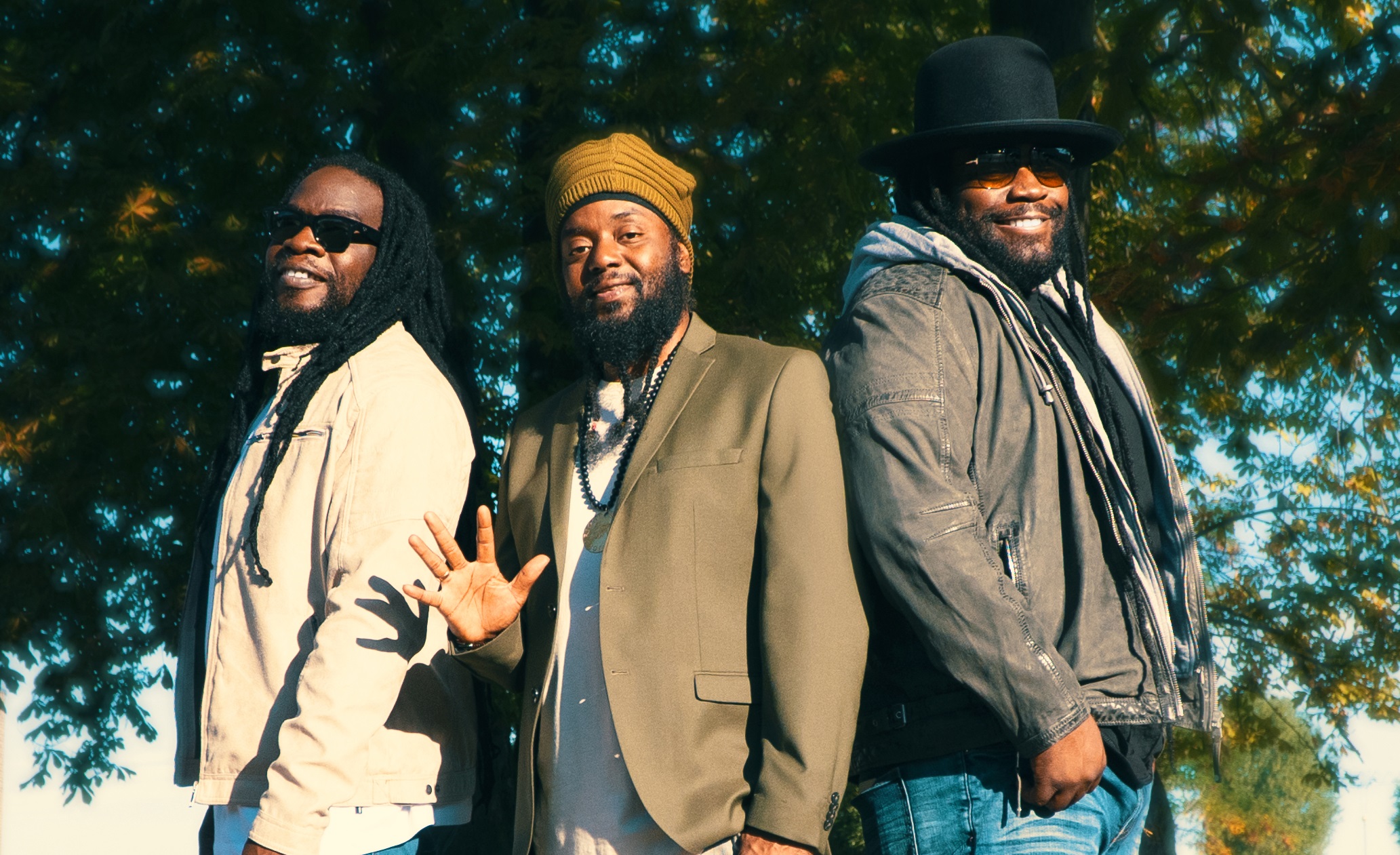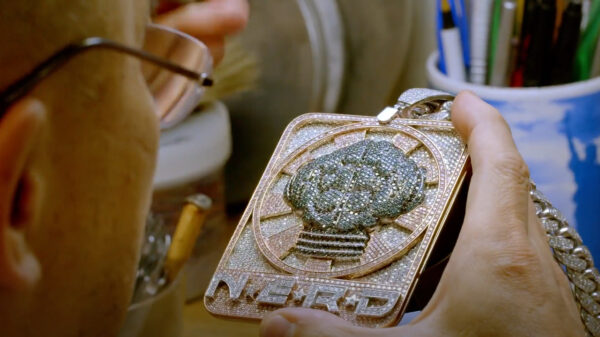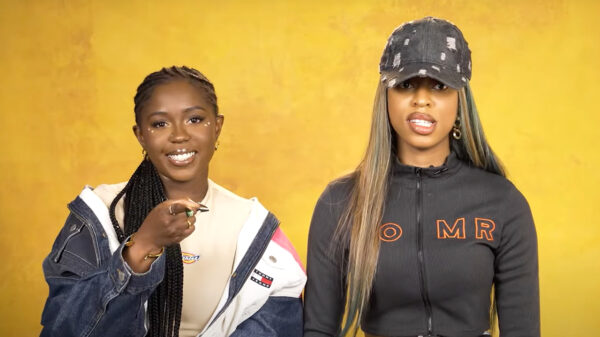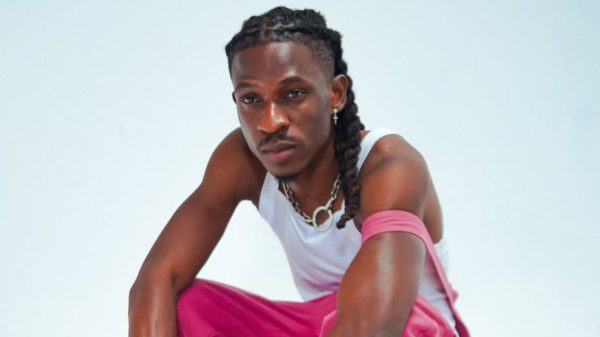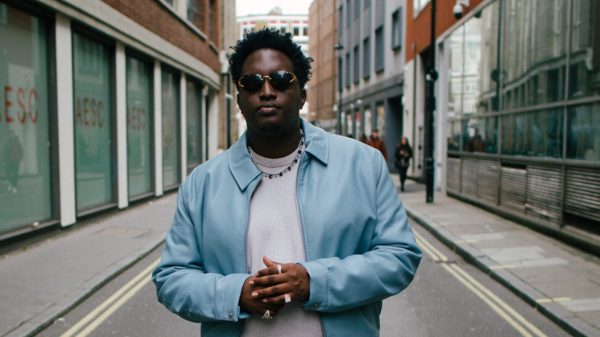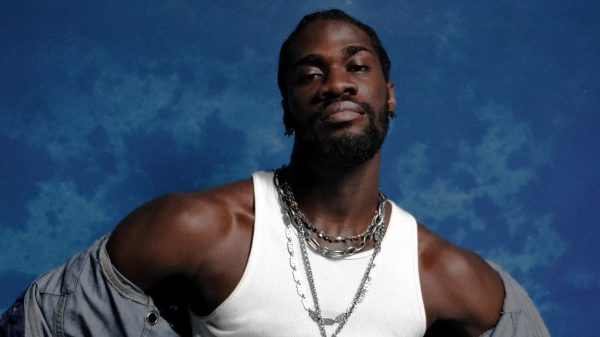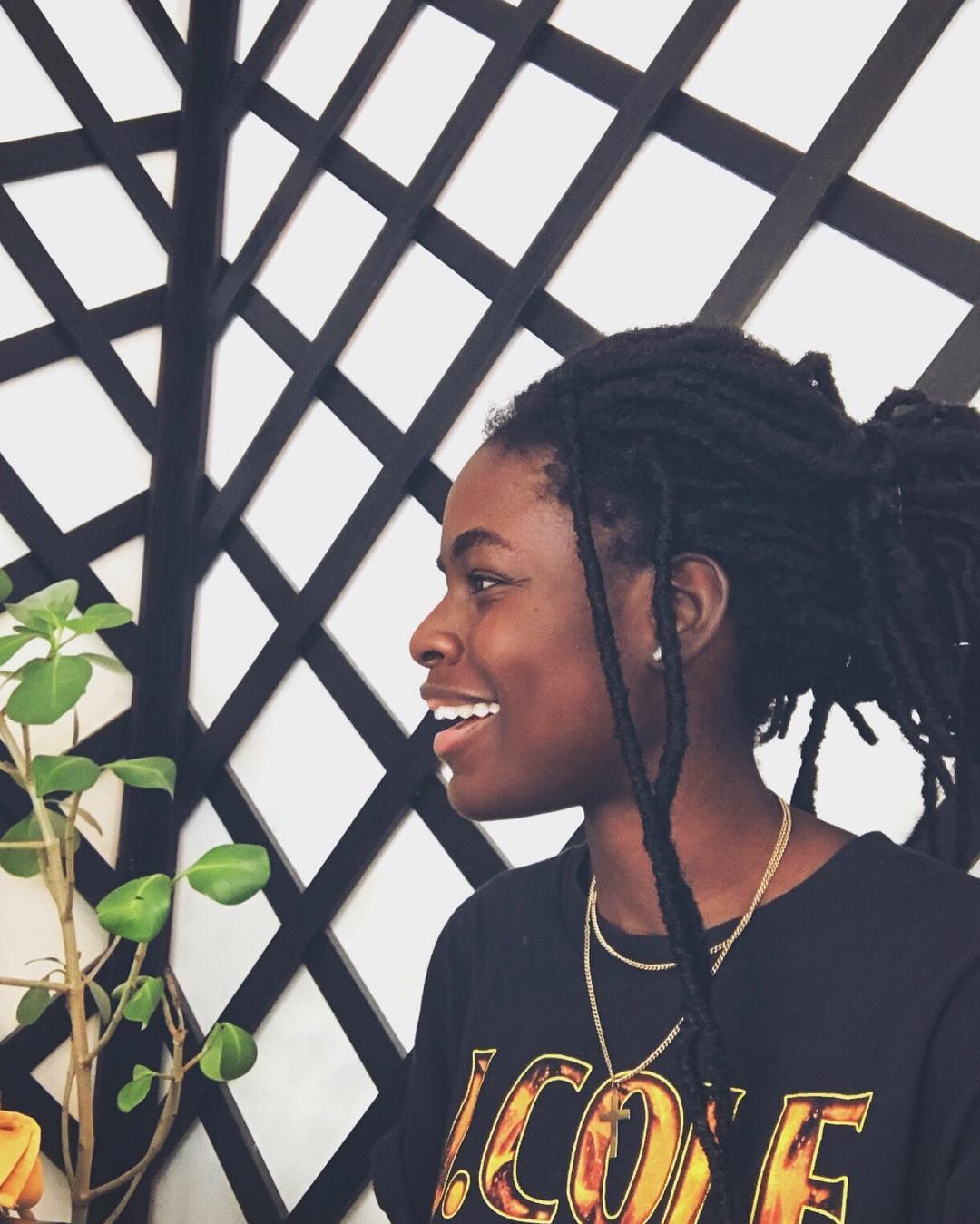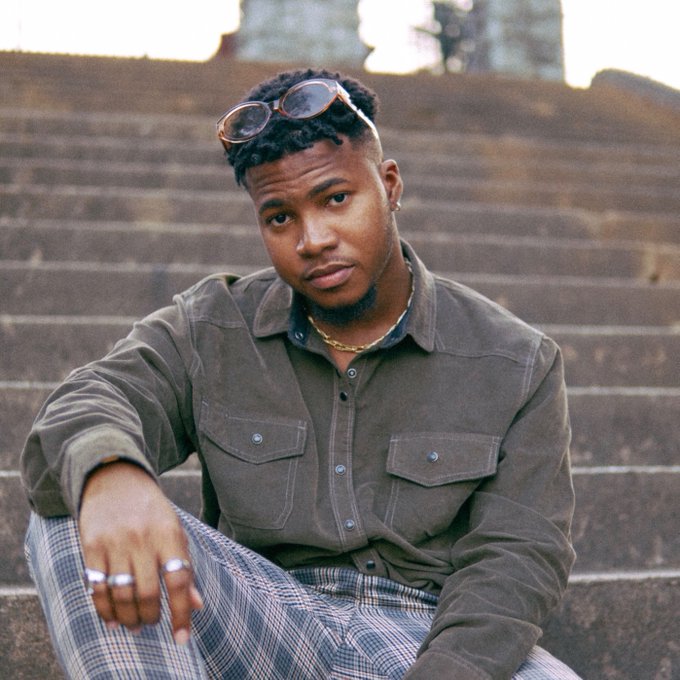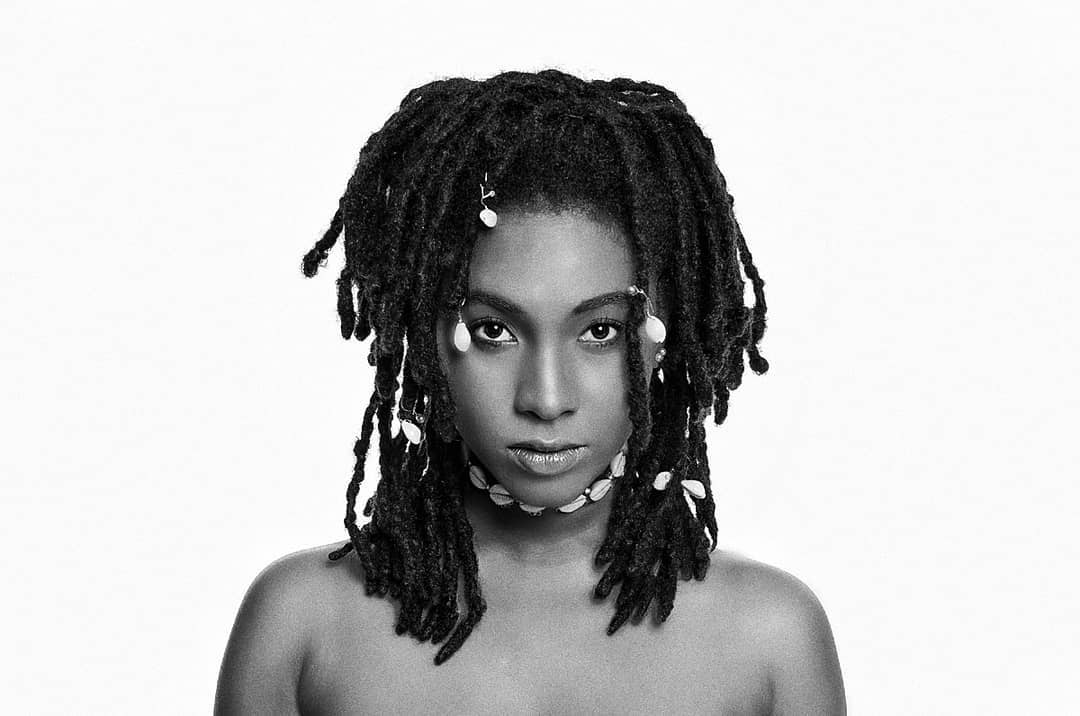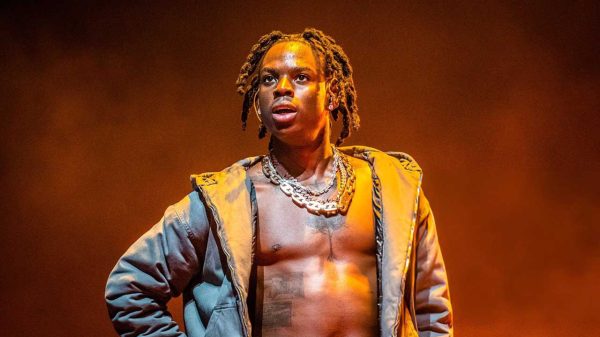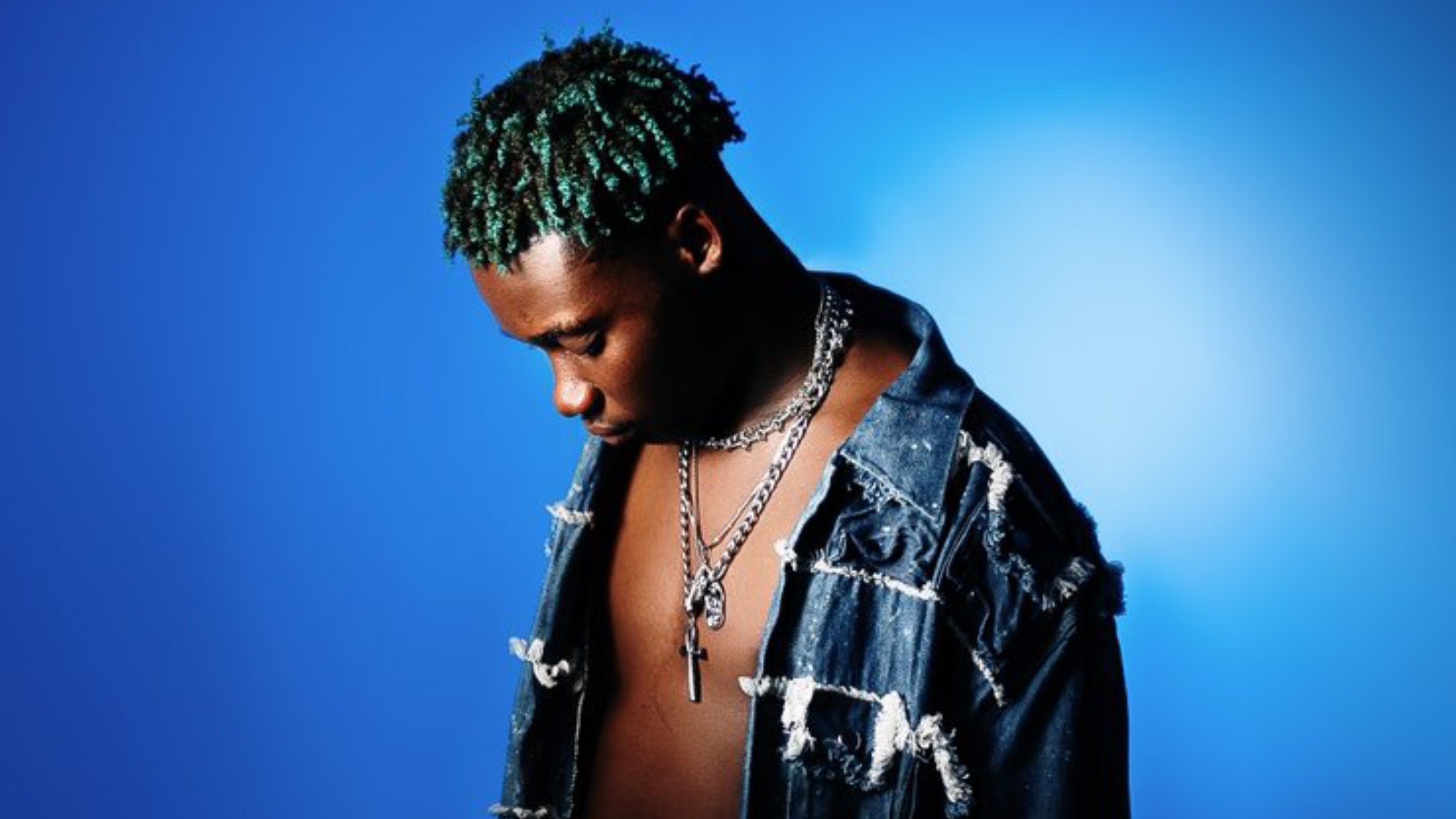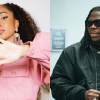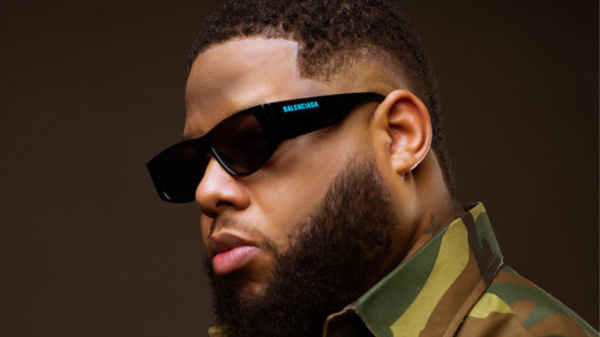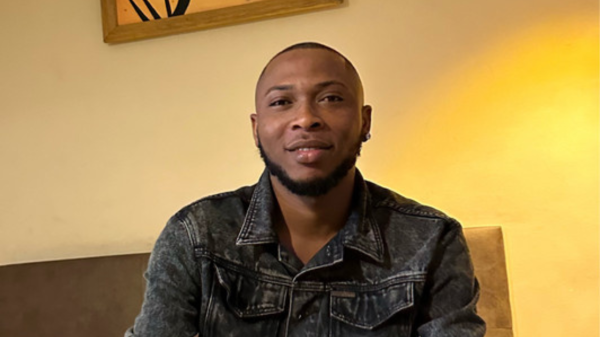Olivetheboy’s Out of the Blue explores love, heartbreak, and emotional complexity, marking a bold evolution in sound and identity for one of Afrobeats’ rising stars.
Born Joel Osei Bonsu, Ghanaian singer and songwriter Olivetheboy made his breakout in 2023 with Goodsin —a track that had all the markings of a TikTok-driven moment destined to fade. But instead of disappearing into the algorithm’s abyss, Olivetheboy defied expectations, expanding his reach and solidifying his place in the Afrobeats landscape..
Most artists use their debut and sophomore projects to document struggle and origin stories, paying homage to humble beginnings and past lives. But Olivetheboy isn’t chasing the textbook Afrobeats narrative. He’s not interested in telling you where he’s from—he’s here to tell you who he’s loving, how he’s loving, and just how badly it might hurt if that love disappears.
Goodsin was the soft launch. The record thrived on melody first, lyrics second—and even though there’s some depth buried beneath the lust, the average listener didn’t care. The vibe was enough. And Nigerians ate it up. For a Ghanaian artist still early in his run, that kind of cross-border appeal is no small feat.
Then came Asylum, a track that feels like a love letter soaked in toxicity. He tells his lover that leaving him would be a bad idea—like, divine punishment levels of bad. But instead of sounding like a toxic ex, Olivetheboy couches his warnings in lush melodies and harmonies that make you want to hit replay. Produced by Beatz Vampire, just like Goodsin, Asylum cemented a formula: emotionally reckless lyrics wrapped in dangerously addictive soundscapes.
That chemistry is alive and well on his debut EP, Avana, where Olivetheboy slips into full Romeo mode. But his sophomore project, Out of the Blue, is where things get interesting—where he drops the sweet boy act and leans fully into seduction. Not just the flirty kind, but the type that burns slowly, that makes you suspicious of how many other women have heard these exact lyrics.
Out of the Blue is an eight-track project that sees Olivetheboy doubling down on what works: tales of romance, rejection, and the occasional heartbreak-induced villain arc. Most of the eight tracks are love-centered, veering into something that feels like personal introspection. That’s not a bug—it’s the whole design.
Beatz Vampire returns on production, and it’s clear the two have found their pocket. The result is a sound that feels intimate yet expansive, seductive but never shallow.
It opens with Convo featuring rising Ghanaian songstress Veola, where both artists mourn a love that’s slipping away. Veola sets the tone with the line, “Omo, this no be who I be,” launching them into a soft, slow descent into heartbreak. The bass is there, but it’s hushed—just enough to carry the emotion without crowding it.
Then things heat up. On Bend, Olivetheboy enlists Sarkodie for what might be the EP’s most explicit offering. It’s sexy, moody, and carried by a raspy female monologue that sounds like a voicemail you weren’t supposed to hear. Olivetheboy talks about bedmatics; Sarkodie tries to match the energy, and they both deliver.
Tattoo turns the dial further. It’s raw and unfiltered. Olivetheboy throws out poetic flirtations in favor of direct, provocative lyricism. There’s a moment where it seems like he tries to rein it in with a bit of romanticism, but it’s too late. The song already smells like incense and impulse decisions.
Design and One Bebe mark a shift back into vulnerable territory. On Design, he sings, “Seen so many girls and girl I’m quite popular / but I still fall for ya”—the kind of line that’s both sincere and suspicious. One Bebe continues the narrative, a sonic follow-up that feels like chasing the same girl through different stages of infatuation.
But just when you think he’s softened, Olivetheboy hits reverse. The final stretch of the project, Survivor featuring Qing Madi, Fuul with Mayorkun, and Trees takes a darker turn. These are the heartbreak anthems. The love-is-a-scam songs. In Fuul, he calls love a cruel prank. In Survivor, he struggles to understand why anyone would find someone who could hurt them as sweet. And in Trees, he practically renounces love altogether, basically insinuating that he’d rather become smoke than house feelings again.
Out of the Blue plays like a coming-of-age diary—a portrait of a young artist pushing the limits of his emotional bandwidth in real time. Olivetheboy channels obsession, heartbreak, and seduction into a sonic love letter to messy, magnetic youth. Whether he’s your hopeless romantic or your red flag, he delivers it all with undeniable style.
There’s something distinctly generational about his approach. He speaks the language of digital romance—fleeting, fast, sometimes fickle, but intensely felt in the moment. As the poster boy for a new wave of West African artists, he isn’t fixated on proving his roots; he leads with feeling. And while some may fault the project for leaning too heavily into love themes, that is the story. Love is the struggle. Women are the muse. Seduction is the hustle.
Olivetheboy knows exactly who he wants to be on this record: love-obsessed, emotionally exposed, and just a little toxic. That self-awareness gives the album its identity. But Out of the Blue is held back by sonic sameness, emotional narrowness, and a lack of surprise. It’s a solid sophomore effort, but not a genre-defining one.
If Avana introduced him to the conversation, Out of the Blue is his statement of intent. He’s not here to sing about where he’s been—he’s here to soundtrack who you’re texting at 2 a.m.

